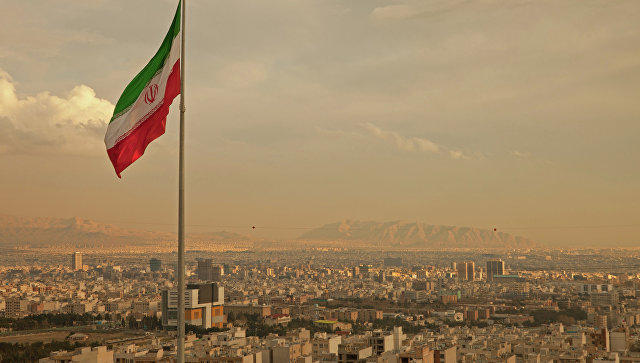Iran will not change its policy under pressure from sanctions

By Abdul Kerimkhanov
Iranian Foreign Minister Mohammad Javad Zarif said Tehran will not change its policy under pressure from U.S. sanctions.
Earlier, the U.S. ambassador to the EU Gordon Sundland said that the U.S. does not set a goal to change the regime in Iran or harm the people of this country, Washington wants to "change the behavior of the regime." "Of course, sanctions have an economic impact, but they will not affect our policies," Zarif said in an interview with Al-Arabi al-Jadid.
Iran began to feel the consequences in the past six months after the U.S. abandoned the nuclear deal, but in fact, it all started last year, when U.S. President Donald Trump spoke of a "new strategy towards Iran.", according to Zarif.
"Since then, the consequences for the economy began, which means that the sanctions are targeted on the Iranian people. The U.S. hopes that the embargo will induce the Iranians to put pressure on the government to change its policy, or even become a threat to the entire system," Zarif concluded.
Earlier, Iranian Foreign Minister Mohammad Javad Zarif said that U.S. will not achieve its goals by imposing new sanctions against Iran and nothing new will happen because of them. American sanctions, rather, will have a psychological effect, stressed Zarif.
The U.S. introduced a second package of unilateral sanctions against Tehran aimed at restricting the export of Iranian oil on November 5. More than 700 individuals and legal entities, ships and aircraft of Iran fell under the new U.S. sanctions.
This is the second wave of sanctions imposed by the Trump administration since May of this year.
Despite the desire to reduce to zero the supply of Iranian oil to the world market, Washington nevertheless went for relief for a number of countries purchasing energy from Iran, including Italy, Greece, Turkey, India, China, South Korea, Japan, Taiwan.
In 2012, the Iranian government ceased, in response to sanctions by Western countries, the sale of oil to the U.S. and the UK, and from the beginning of 2013 to the EU.
After Iran made concessions on the nuclear program, in 2016 the U.S. authorities announced the lift of sanctions from 59 individuals (citizens of Iran and other countries), 385 enterprises, 77 planes and 227 ships.
In 2018, the Trump administration restored sanctions against Iran.
U.S. President Donald Trump announced in May that Washington was withdrawing from an agreement on a nuclear program with Iran. Trump also reported on the restoration of all sanctions against Iran, including secondary ones, that is, in relation to other countries doing business with Iran. The United States re-introduced part of the sanctions against Iran on August 7. More substantial sanctions that will cover oil exports are expected from the beginning of November.
From August 7, 2018, the updated Blocking Statute entered into force in the EU, the provisions of which are aimed at protecting European companies from the influence of U.S. extraterritorial sanctions.
---
Abdul Kerimkhanov is AzerNews’ staff journalist, follow him on Twitter: @AbdulKerim94
Follow us on Twitter @AzerNewsAz
Here we are to serve you with news right now. It does not cost much, but worth your attention.
Choose to support open, independent, quality journalism and subscribe on a monthly basis.
By subscribing to our online newspaper, you can have full digital access to all news, analysis, and much more.
You can also follow AzerNEWS on Twitter @AzerNewsAz or Facebook @AzerNewsNewspaper
Thank you!
